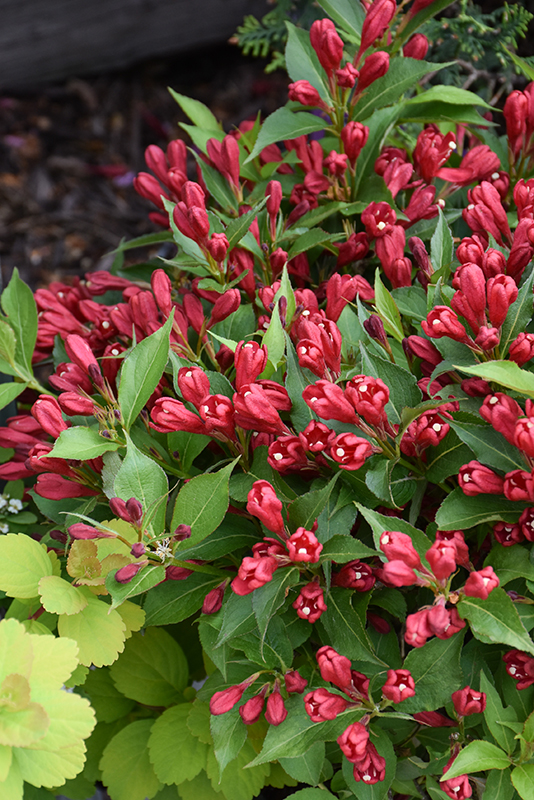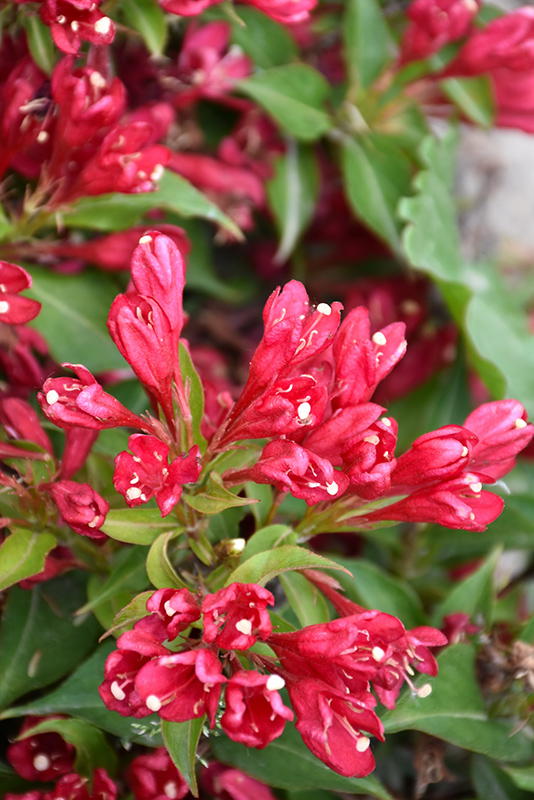VANDERMEER
PLANT LIBRARY
Find the perfect plant for your space by browsing through this extensive selection that we typically carry every year.
This library is for information purposes only.
Crimson Kisses Weigela
Weigela florida 'Slingco 1'
Height: 32 inches
Spread: 32 inches
Sunlight:
![]()
Hardiness Zone: 4a
Description:
An outstanding, reblooming variety, covered in crimson trumpet-shaped flowers with white centers for an extended time; attracts hummingbirds; settles into the background the rest of the year; may be somewhat open in habit, good for general garden use
Ornamental Features
Crimson Kisses Weigela is clothed in stunning clusters of crimson trumpet-shaped flowers with white throats along the branches from late spring to mid summer. It has forest green deciduous foliage. The pointy leaves do not develop any appreciable fall colour.
Landscape Attributes
Crimson Kisses Weigela is a multi-stemmed deciduous shrub with a mounded form. Its average texture blends into the landscape, but can be balanced by one or two finer or coarser trees or shrubs for an effective composition.
This shrub will require occasional maintenance and upkeep, and should only be pruned after flowering to avoid removing any of the current season's flowers. It is a good choice for attracting hummingbirds to your yard. It has no significant negative characteristics.
Crimson Kisses Weigela is recommended for the following landscape applications;
- Accent
- Mass Planting
- Hedges/Screening
- General Garden Use
Planting & Growing
Crimson Kisses Weigela will grow to be about 32 inches tall at maturity, with a spread of 32 inches. It has a low canopy. It grows at a medium rate, and under ideal conditions can be expected to live for approximately 30 years.
This shrub should only be grown in full sunlight. It prefers to grow in average to moist conditions, and shouldn't be allowed to dry out. It is not particular as to soil type or pH. It is highly tolerant of urban pollution and will even thrive in inner city environments. This is a selected variety of a species not originally from North America.






